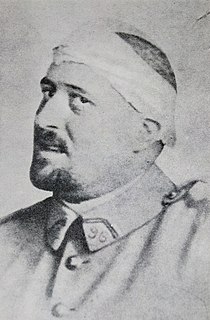A Quote by Charles Baudelaire
There exist certain individuals who are, by nature, given purely to contemplation and are utterly unsuited to action, and who, nevertheless, under a mysterious and unknown impulse, sometimes act with a speed which they themselves would have thought beyond them.
Related Quotes
The subconscious mind will translate into its physical equivalent a thought impulse of a negative or destructive nature, just as readily as it will act upon thought impulses of a positive or constructive nature. This accounts for the strange phenomenon which so many millions of people experience, referred to as "misfortune" or "bad luck."
The pacifist thinks that the alternative to war is peace; it is not. Sometimes the alternative is oppression. Sometimes certain God-given rights and liberties can be preserved only by resistance to that which would destroy them. And to defend certain basic God-given rights and liberties is not immoral but righteous.
Thought is the creative power, or the impelling force which causes the creative power to act; thinking in a Certain Way will bring riches to you, but you must not rely upon thought alone, paying no attention to personal action. That is the rock upon which many otherwise scientific metaphysical thinkers meet shipwreck–the failure to connect thought with personal action.
But love's true nature remains forever beyond the grasp of all our faculties. It is far greater than any feeling or emotion and completely surpasses any act of human kindness. It is the one sheer gift of contemplation, completely unattainable by autonomous human effort. The realization of this love always remains mysterious.
Without poets, without artists, men would soon weary of nature's monotony. The sublime idea men have of the universe would collapse with dizzying speed. The order which we find in nature, and which is only an effect of art, would at once vanish. Everything would break up in chaos. There would be no seasons, no civilization, no thought, no humanity; even life would give way, and the impotent void would reign everywhere.
The Oriental philosophy approaches easily loftier themes than the modern aspires to; and no wonder if it sometimes prattle about them. It only assigns their due rank respectively to Action and Contemplation, or rather does full justice to the latter. Western philosophers have not conceived of the significance of Contemplation in their sense.
The human understanding is of its own nature prone to suppose the existence of more order and regularity in the world than it finds. And though there be many things in nature which are singular and unmatched, yet it devises for them parallels and conjugates and relatives which do not exist. Hence the fiction that all celestial bodies move in perfect circles, spirals and dragons being (except in name) utterly rejected.
Let there be two possible things, A and B, one of which is such that it is necessary that it exists, and let us assume that there is more perfection in A than in B. Then, at least, we can explain why A should exist rather than B and can foresee which of them will exist; indeed, this can be demonstrated, that is, rendered certain from the nature of the thing.
For, the sense of being which in calm hours rises, we know not how, in the soul, is not diverse from things, from space, from light, from time, from man, but one with them, and proceeds obviously from the same source whence their life and being also proceed. We first share the life by which things exist, and afterwards see them as appearances in nature, and forget that we have shared their cause. Here is the fountain of action and of thought.







































